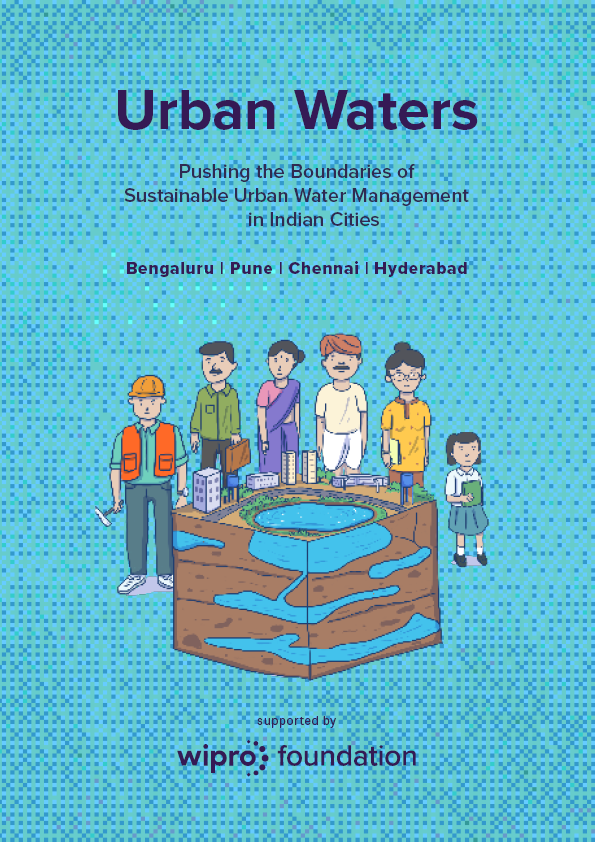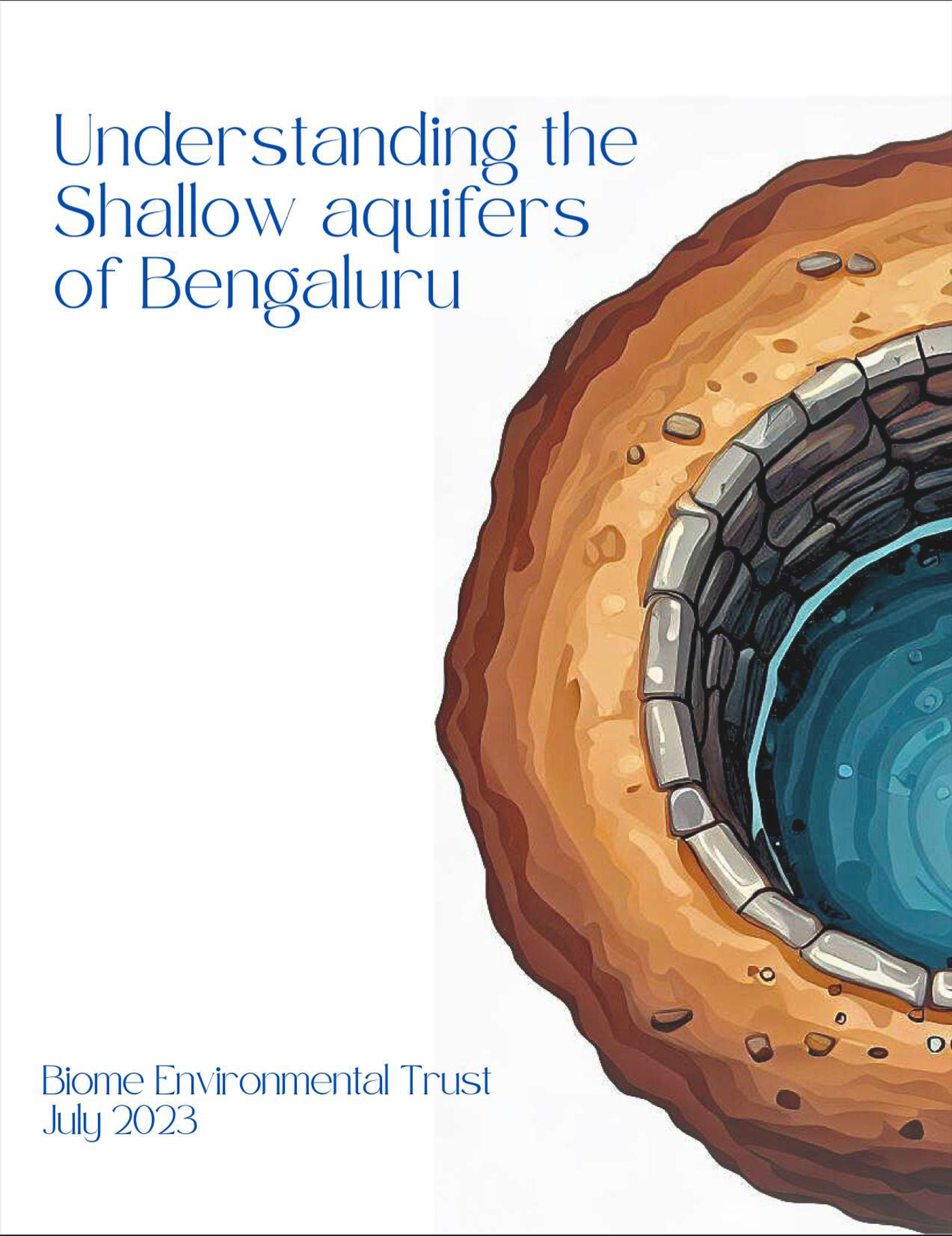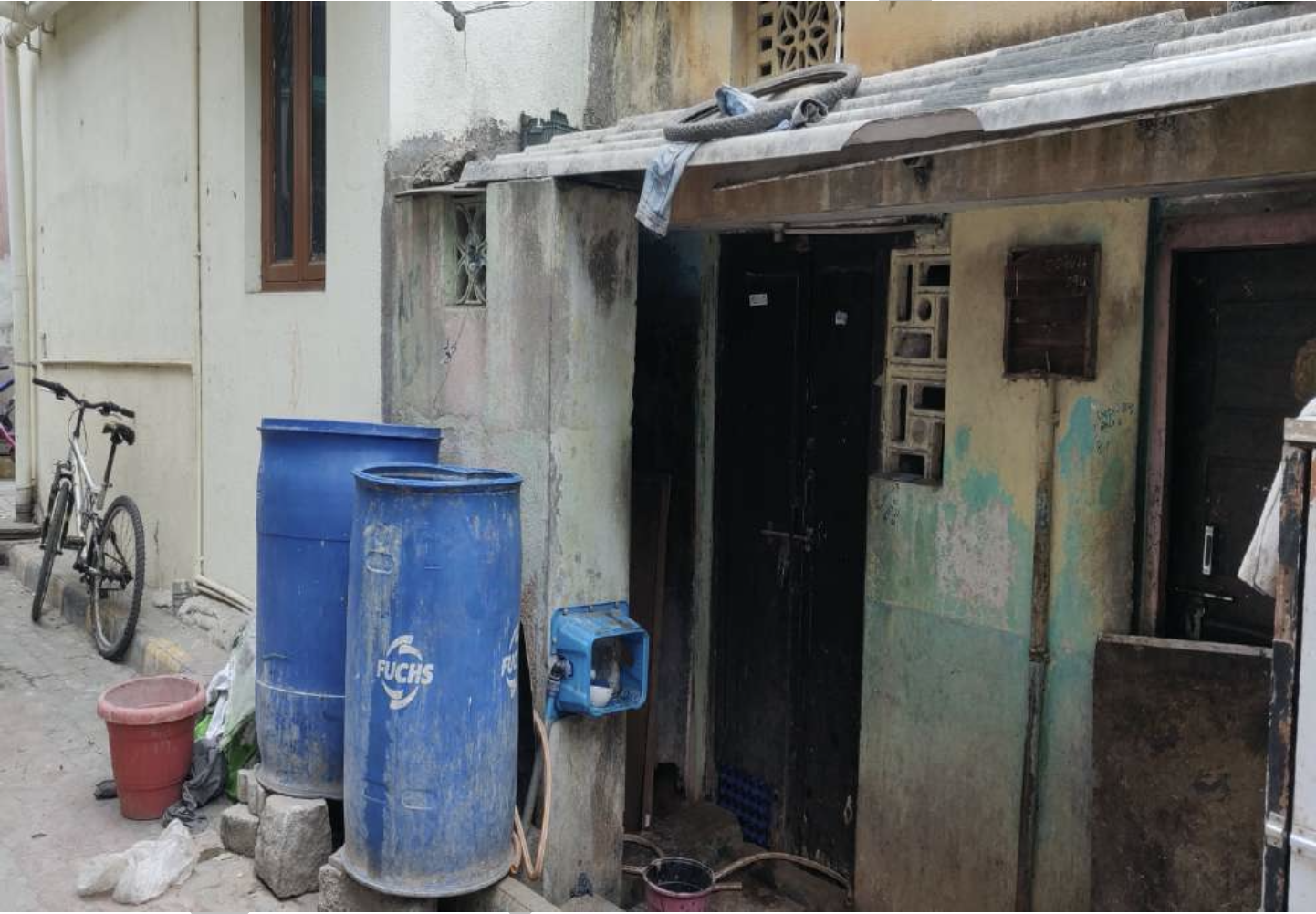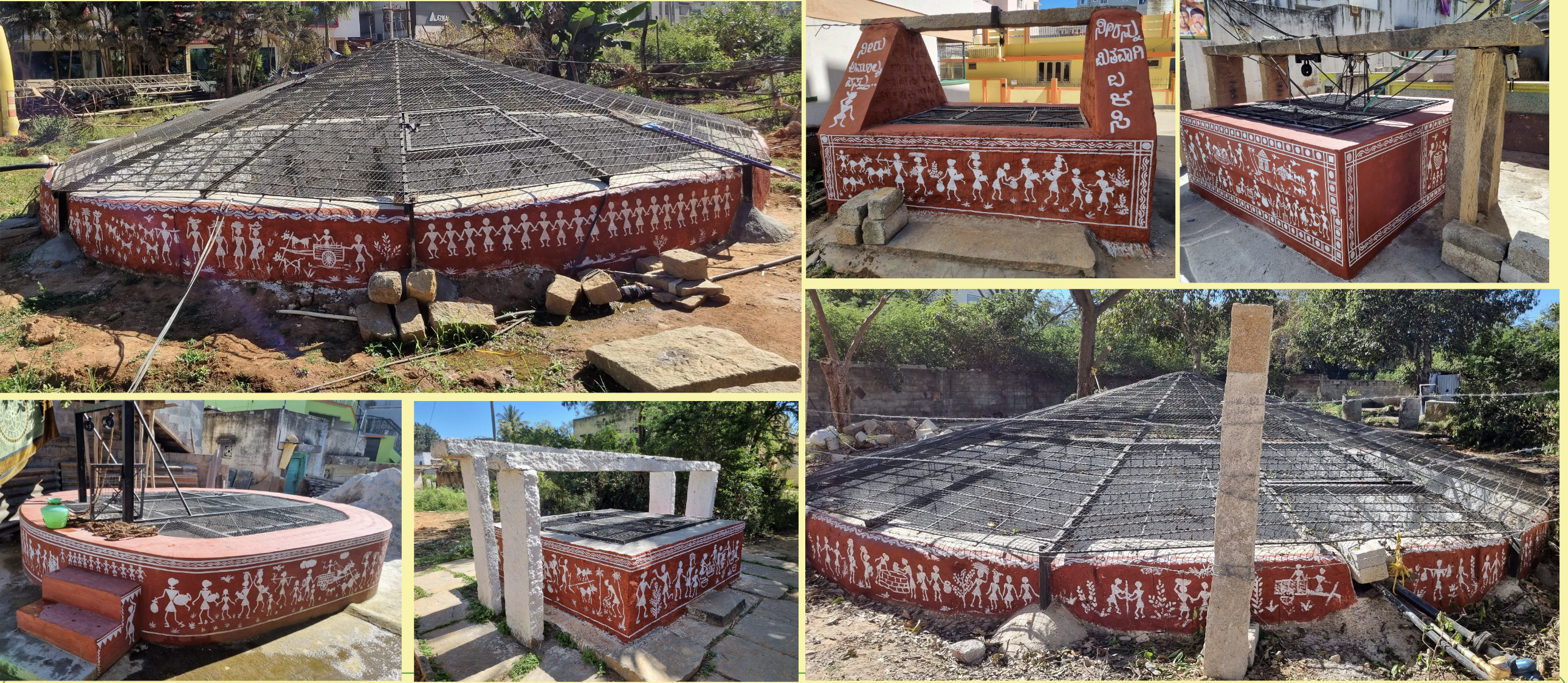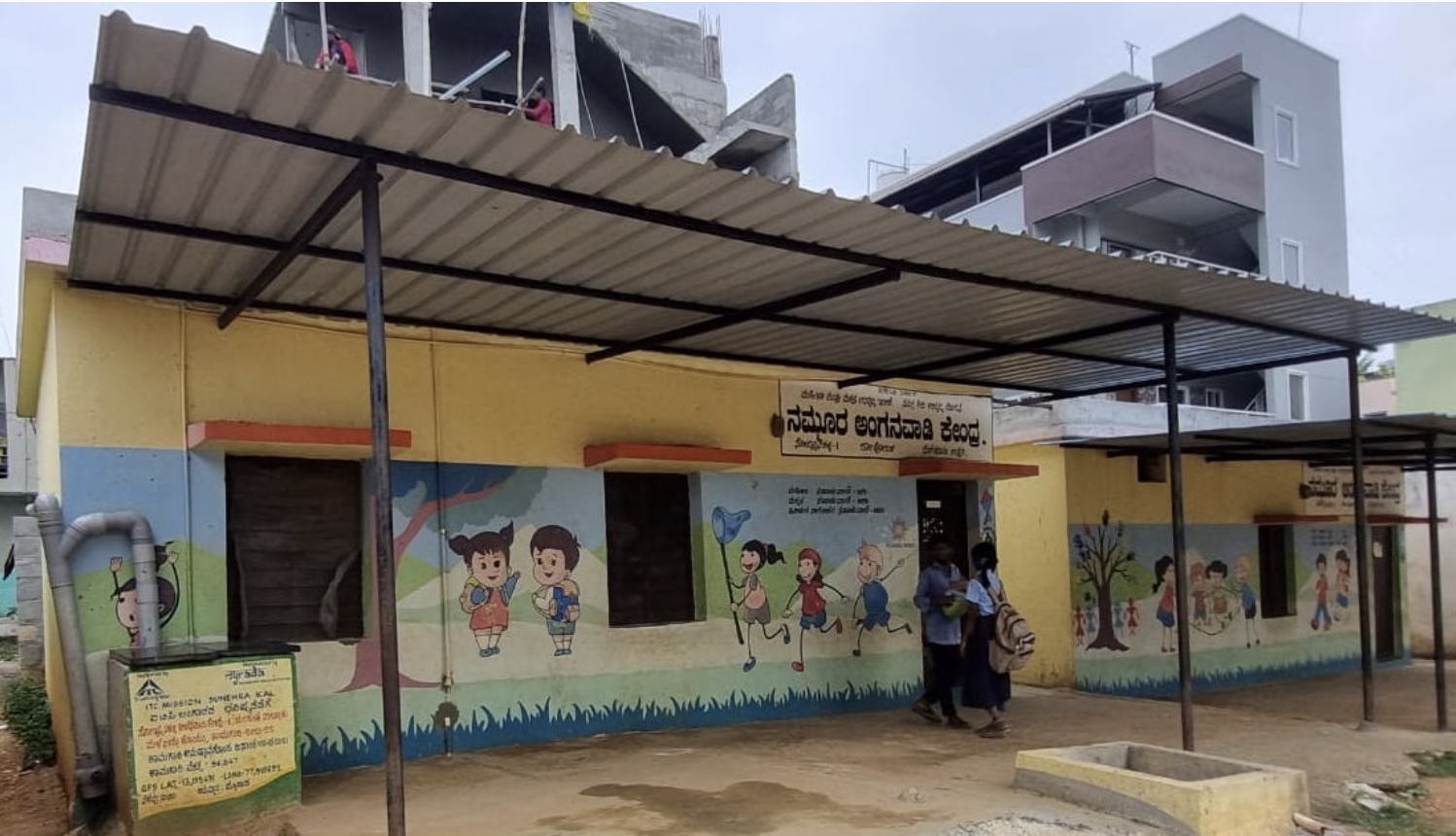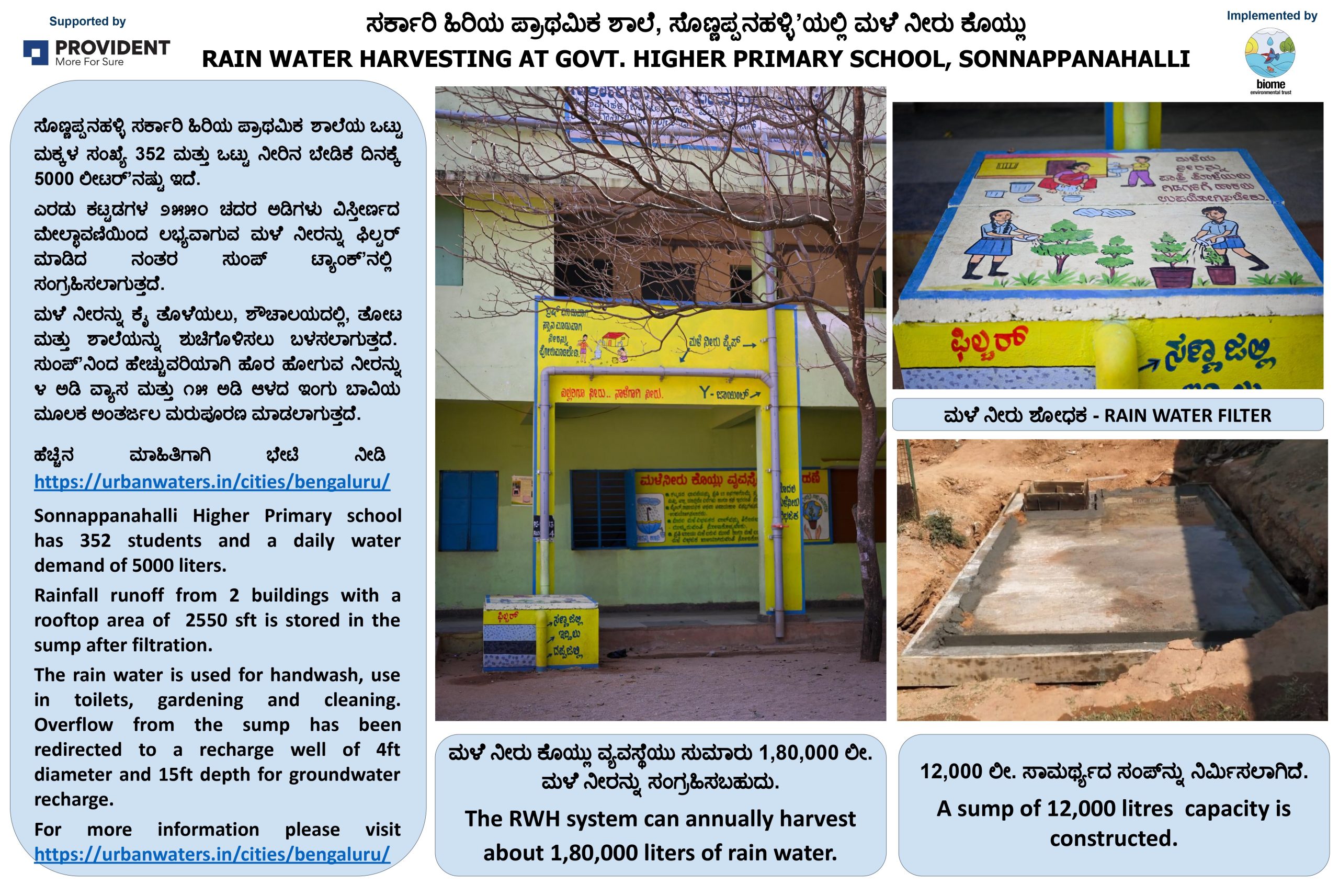Water management at Nandi Deepa Apartments


Nandi Deepa, an apartment complex built in 2005 on Bannerghatta Road, has 109 occupied flats with 350 to 450 residents. The complex does not receive BWSSB’s Cauvery water, has 4 borewells, of which only one was used, and an STP (Sewage Treatment Plant), the treated water from which is used for flushing toilets and gardening. The complex requires between 48,000 to 50,000 litres of fresh water per day, which was mainly supplied by water tankers, costing the residents Rs.14 to 16 lakh annually.
In June 2020, the new Residents’ Welfare Association (RWA), decided to implement sustainable water initiatives and lower the expenditure on water. The RWA revived the existing open well and borewells and implemented rainwater harvesting and groundwater recharging.
Water Team’s Initiatives
- Using the borewells: 3 out of the 4 borewells were found to have water. New motors were installed to utilise the water. This helped the RWA save almost Rs 2000 per day (~ Rs 58000 per month) on tanker costs.
- Digging recharge wells: In December 2020, a recharge well of 4ft width and 20ft depth was dug around one borewell. When it rains, surface runoff water or stormwater enters the recharge well and then flows into the borewell through the holes in the casing. Silt in the water is filtered by the layers of gravel in the well*. This caused the borewell yield to increase significantly in the monsoon. In August 2021, three more recharge wells were dug around the other borewells.

Digging of recharge wells
*Biome does not recommend direct borewell recharge with surface runoff or stormwater, as it can contaminate the deep aquifers. Only clean, filtered rooftop runoff should be used for direct borewell recharge.
- Reviving the open well: The apartment complex has an old open well, whose diameter and depth are both 20 ft. This was cleaned, and the rooftop runoff was channelled into it. This helped recharge around 3564 KL of rainwater annually.

Open well during and after cleaning
Water Team’s Results
After the borewells were revived:
- The number of water tankers required went down by nearly 50%.
- The yield of the borewell was observed to increase significantly.
| Total capital cost in digging recharge wells and cleaning open well | Rs 22.2 lakh |
| Decrease in monthly water costs (from 14 to 7 water tankers) | Rs. 62,720 |
| Further decrease in monthly costs (from 7 to 4 water tankers) | Rs. 35,840 |
| Potential annual decrease in water costs | Rs. 7,52,640 + Rs. 4,30,080 = Rs 11.82 lakh |
So the community could recover their capital costs in just two years!
Here’s the detailed case study and a video made by the Nandi Deepa water team.


